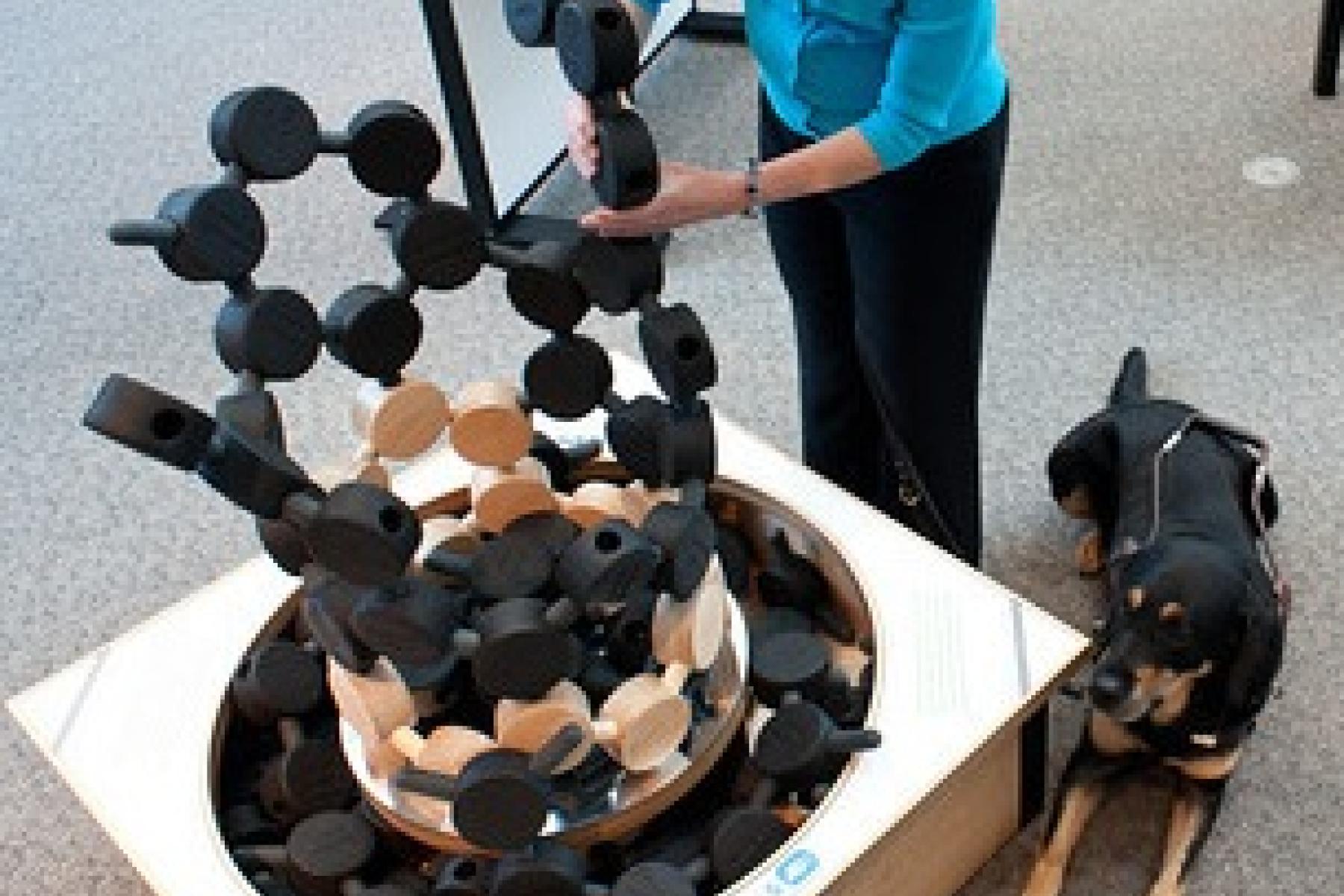DESCRIPTION
Hosted in July 2013 by the Museum of Science, Boston, the Universal Design of Educational Programs workshop was intended for museum educators who develop and conduct educational programs or train those who do. Invited workshop participants had a hands-on opportunity to apply NISE Net's universal design guidelines to a current NISE Net program and collect feedback on their progam from people with disabilities using the Team-Based Inquiry approach. Included here are the powerpoint slides, handouts, and other resources from the workshop.
DESCRIPTION
Hosted in July 2013 by the Museum of Science, Boston, the Universal Design of Educational Programs workshop was intended for museum educators who develop and conduct educational programs or train those who do. Invited workshop participants had a hands-on opportunity to apply NISE Net's universal design guidelines to a current NISE Net program and collect feedback on their progam from people with disabilities using the Team-Based Inquiry approach. Included here are the powerpoint slides, handouts, and other resources from the workshop.
OBJECTIVES
BIG IDEA
Learn about and explore universal design concepts: the design of products and environments to be usable by all people, to the greatest extent possible, without the need for adaptation or specialized design.
LEARNING GOALS
Learn about and explore universal design concepts.
Be able to apply universal design principles to developing or adapting nano educational programs.
Understand the importance of educating people with disabilities in museums.
Become more comfortable working with visitors who have disabilities.
Learn about Team-Based Inquiry, an approach to evaluation and professional inquiry that can be used to develop and implement universally designed educational products and practices.
NANO CONTENT MAP
Nanometer-sized things are very small, and often behave differently than larger things do.
Scientists and engineers have formed the interdisciplinary field of nanotechnology by investigating properties and manipulating matter at the nanoscale.
Nanoscience, nanotechnology, and nanoengineering lead to new knowledge and innovations that weren't possible before.
Nanotechnologies—and their costs, utility, risks, and benefits—are closely interconnected with society and with our values.
DOWNLOAD FILES
- UD Workshop Agenda (DOC)
- UD Workshop - Intro to UD Approach (PPT)
- UD Workshop - Demographics (PPT)
- UD Workshop - Intro to UD Guidelines (PPT)
- UD Workshop - Intro to Team-Based Inquiry (PPT)
- UD Workshop - Team-Based Inquiry Worksheet (DOC)
- UD Workshop - Next Steps Presentation (PPT)
- UD Workshop - Next Steps Handout (DOC)
- UD Workshop - Non-Profit Funders (DOC)
Credits
Museum of Science
Developed for the NISE Network with funding from the National Science Foundation under Award Numbers 0532536 and 0940143. Any opinions, findings, and conclusions or recommendations expressed in this product are those of the authors and do not necessarily reflect the views of the Foundation.
Creative Commons Attribution Non-Commercial Share Alike 3.0 United States (CC BY-NC-SA 3.0 US).
View more details

NISE Network products are developed through an iterative collaborative process that includes scientific review, peer review, and visitor evaluation in accordance with an inclusive audiences approach. Products are designed to be easily edited and adapted for different audiences under a Creative Commons Attribution Non-Commercial Share Alike license. To learn more, visit our Development Process page.

